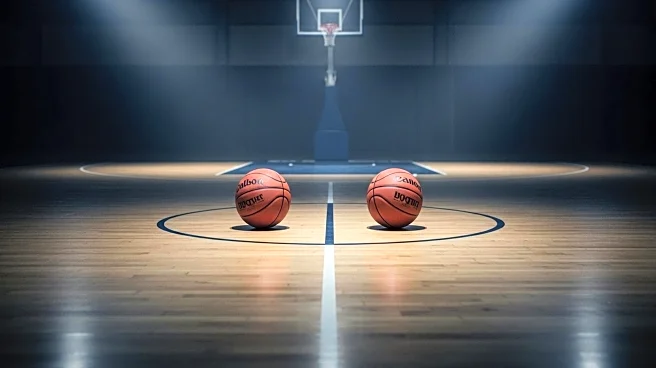What's Happening?
Kendrick Perkins, a former NBA player turned media personality, has disclosed the reasons behind the end of his friendship with Russell Westbrook, a fellow former teammate. The fallout occurred after Perkins publicly advised Westbrook to 'temper it down' during a television broadcast, warning that his behavior could lead to him being pushed out of the league. This advice was based on conversations Perkins had with various NBA general managers. Westbrook, who was playing for the Lakers at the time, was deeply insulted by the comments, leading to a personal rift that extended to their families. As of the 2025-26 NBA season, Westbrook finds himself without a team, having declined a $3.47 million player option with the Denver Nuggets after the 2024-25 season. Despite averaging 21.2 points, eight assists, and seven rebounds per game last season, no teams have shown interest in signing him, with only the Sacramento Kings reportedly expressing any interest.
Why It's Important?
The situation highlights the precarious nature of professional sports careers and the impact of public commentary on athletes' reputations and opportunities. Westbrook's current status without a team underscores the potential consequences of not heeding advice from peers and industry insiders. This development could influence how athletes manage their public personas and relationships within the league. It also raises questions about the role of media personalities in shaping public perceptions of athletes and the potential repercussions of their commentary. For Westbrook, the lack of interest from teams could signify a turning point in his career, affecting his marketability and future prospects in the NBA.
What's Next?
The future for Russell Westbrook remains uncertain as the NBA season progresses without him on a roster. It is unclear whether he will find a team willing to sign him or if he will need to consider alternative paths, such as retirement or playing overseas. The situation may prompt other athletes to reassess their public behavior and relationships with media figures, potentially leading to more cautious interactions. Additionally, teams may become more vigilant in evaluating players' off-court conduct when making roster decisions, impacting how athletes are perceived and valued in the league.
Beyond the Headlines
This incident sheds light on the broader dynamics between athletes and media personalities, highlighting the influence of public discourse on professional sports careers. It raises ethical considerations about the responsibility of media figures in reporting and commenting on athletes' conduct. The situation also reflects the cultural pressures athletes face in maintaining their image and the potential long-term effects on their careers and personal relationships.









